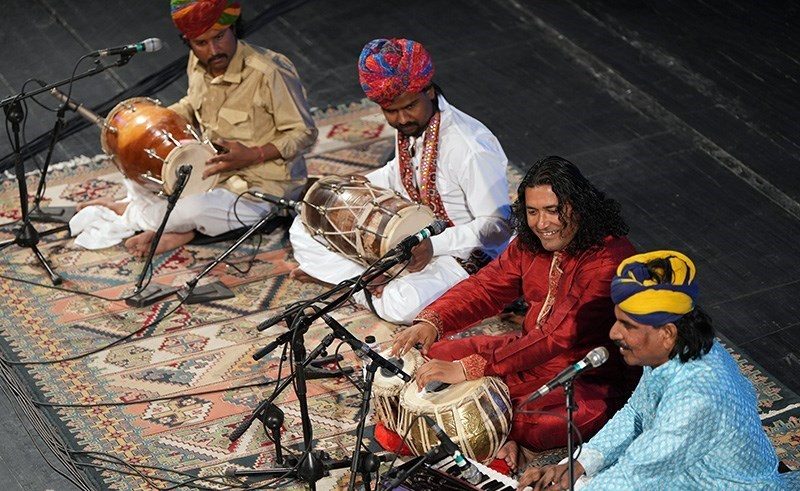
The 39th Fajr Music Festival’s international section welcomed Raees Bharti and his ensemble from Rajasthan, India, to Vahdat Hall on February 13, 2024. Despite a modest turnout, this performance of traditional Rajasthani music offered a captivating blend of love, peace, and spiritual themes, with Bharti’s warm-hearted presence and heartfelt playing making a lasting impression on the audience.
The 39th Fajr Music Festival, in its international section, hosted ensembles from various countries. One of these groups, led by Raees Bharti, had come from India and the land of Rajasthan, performing on the 24th of Bahman 1402 (February 13, 2024).
Unfortunately, like several other international performances, this concert took place in Vahdat Hall with only a small number of attendees. This lack of audience was largely due to poor publicity and inadequate festival promotion. Otherwise, Rajasthani music is so captivating and rich that it could easily have filled all the seats with music lovers.
Raees Bharti was a warm-hearted and cheerful artist who played with passion and spoke of love. Rarely did a moment pass without a smile on his face. At the beginning of the concert, he introduced the audience to some of Rajasthan’s traditional and native instruments. The performers were skillful, and their deep familiarity with the rhythms of Rajasthan was evident in their playing. Rhythm seemed to run through their very beings—one of the musicians even combined his playing with a traditional dance, adding to the music’s emotional effect.
Between pieces, Raees engaged with the audience, striving to convey the message of peace and human kindness that underpins their music. In one of his talks, he mentioned that his grandfather believed the world is one big family of all religions living side by side. “Our religion,” he said, “is love and music, and if love and music were more present in the world, we would have fewer problems.”
Later in the concert, Bharti performed songs with Islamic mystical themes from India, which resonated deeply with the Iranian audience due to their shared spiritual undertones. A delightful aspect of the performance was the artist’s sense of humor—he occasionally tried to amuse the crowd with jokes and light-hearted moments.
One of the songs was titled Neebura, meaning “lemon.”
Raees Bharti was an artist with a beautiful personality and worldview—qualities the world today could use more of. He spoke of love and peace, and with his performance, he sought to bring the hearts of the Iranian people closer to those of the Indian people.
Written By Farid Parish
